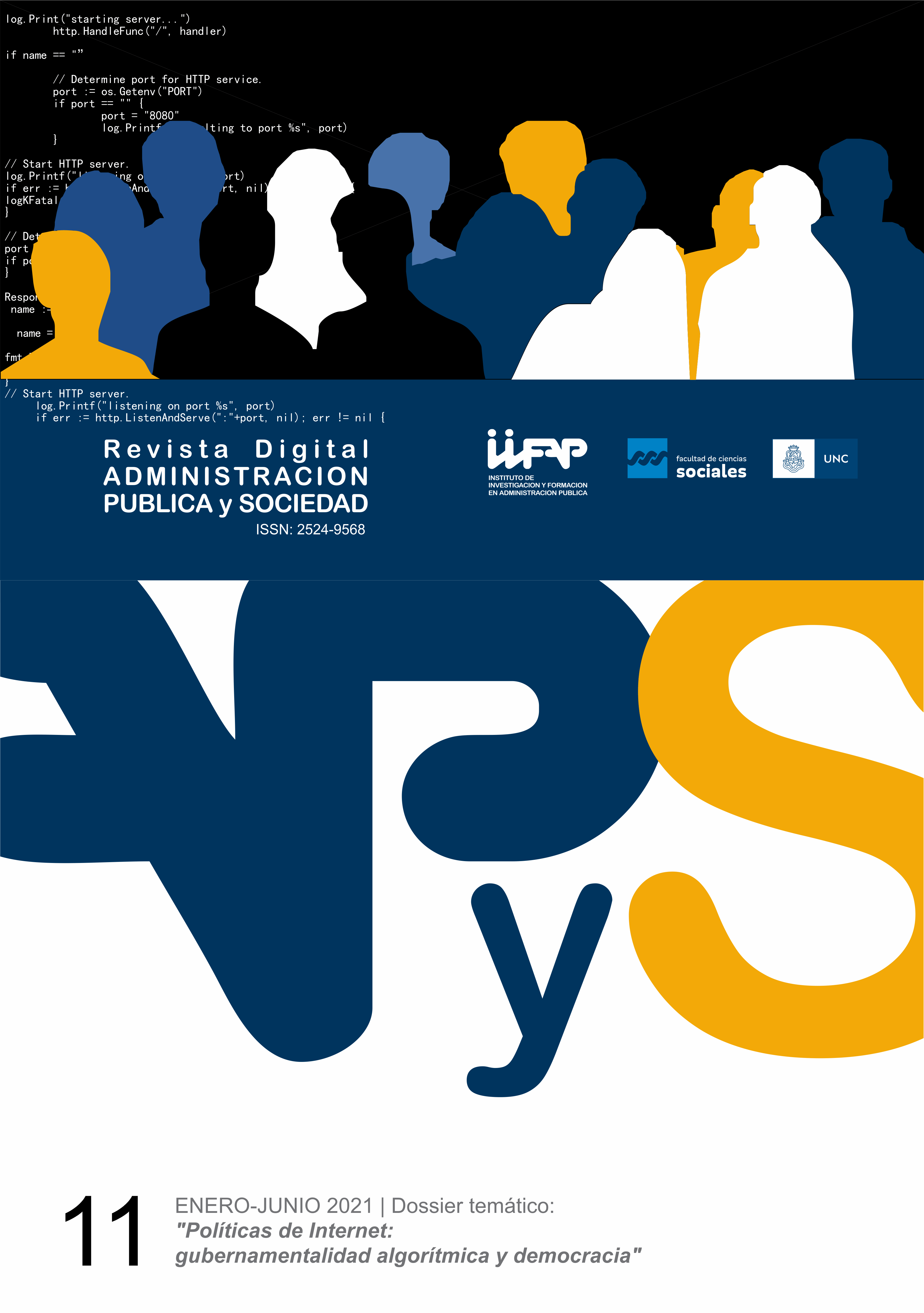From Homo Œconomicus to Dividual: from neoliberalism to algorithmic governmentality
Main Article Content
Abstract
Homo œconomicus is one of the technologies that emerged within neoliberalism. Two of the functions it has are related to being a grid of intelligibility of the subjects and to function as a contact surface between power and individuals that allows government actions to be exercised over the latter. To that extent, it is a mechanism through which a governmentality is effected. Although homo œconomicus had an origin related to political economy, it is necessary to think about it in a governmentality related to digital and algorithmic systems. To that extent, we propose that the dividual has a continuation, insofar as it can be understood as a way in which human behaviors are understood, and at the same time forms of government are exercised over individuals.
Article Details

This work is licensed under a Creative Commons Attribution-NonCommercial-ShareAlike 4.0 International License.
Authors who publish in this journal accept the following terms of the copyright policy:
- Authors shall retain their copyright (including copyrights) and shall grant to the journal the right of first publication of their work, which shall simultaneously be subject to the Creative Commons Recognition License: No commercial use of the original work or any derivative works is permitted, distribution of which must be made under a license equal to that which governs the original work.
- Authors may adopt other non-exclusive license agreements for the distribution of the version of the published work (e.g., placing it in an institutional repository or publishing it in a book) provided that the initial publication in this journal is indicated.
- Authors are allowed and encouraged to disseminate their work through the Internet (e.g., in institutional repositories or on their website) after the publication process, which may lead to interesting exchanges and increased citations of the published work. (See The Effect of Open Access).
How to Cite
References
Becker, G. (1976). The Economic Approach to Human Behavior. Chicago: The University of Chicago Press.
Castro-Gómez, S., (2010), Historia de la gubernamentalidad. Razón de Estado, liberalismo y neoliberalismo en Michel Foucault, Bogotá: Siglo del Hombre Editores.
Deleuze, G. (1999), “Posdata sobre las sociedades de control”, en El lenguaje libertario. Antología del pensamiento anarquista contemporáneo, Buenos Aires: Altamira.
Foucault, M. (2007). Nacimiento de la biopolítica, Buenos Aires: Fondo de Cultura Económica.
Foucualt, M. (2006). Seguridad territorio y población, Buenos Aires: Fondo de Cultura Económica.
Gómez-Barrera, J. (2019). El Botón “Me gusta” de Facebook: de la privacidad a la gubernamentalidad algorítmica. Tesis para obtener el título de Magíster en Comunicación y Cultura. Facultad de Ciencias Sociales: Universidad de Buenos Aires.
Kosinski, M. Stillwell y Graepel, T. (2013a), “Private traits and attributes are predictable from digital records of human behavior”, PNAS (110)15, www.pnas.org/cgi/doi/10.1073/pnas.1218772110
O´Neil, C. (2016). Weapons of Math Destruction. New York: Crown
Pasquinelli, M. (2021). How to Make a Class: Hayek´s Neoliberalism and the Origins of Connectionism. Qui Parle 30 (1). Doi: 10.1215/10418385-8955836
Rodríguez, P. (2019). Las palabras en las cosas: saber, poder y subjetivación entre algoritmos y
biomoléculas. Buenos Aires: Cactus.
Rouvroy, A. (2008). Human Genes and Neoliberal Governance: A Foucauldian Critique. Routledge-Cavendish: New York.
Skinner, B. F. (2003). Ciência e comportamento humano. Sâo Paulo: Martins Fontes.
Von Mises, L. (1986). La acción humana. Madrid: Union Editorial, S. A.

